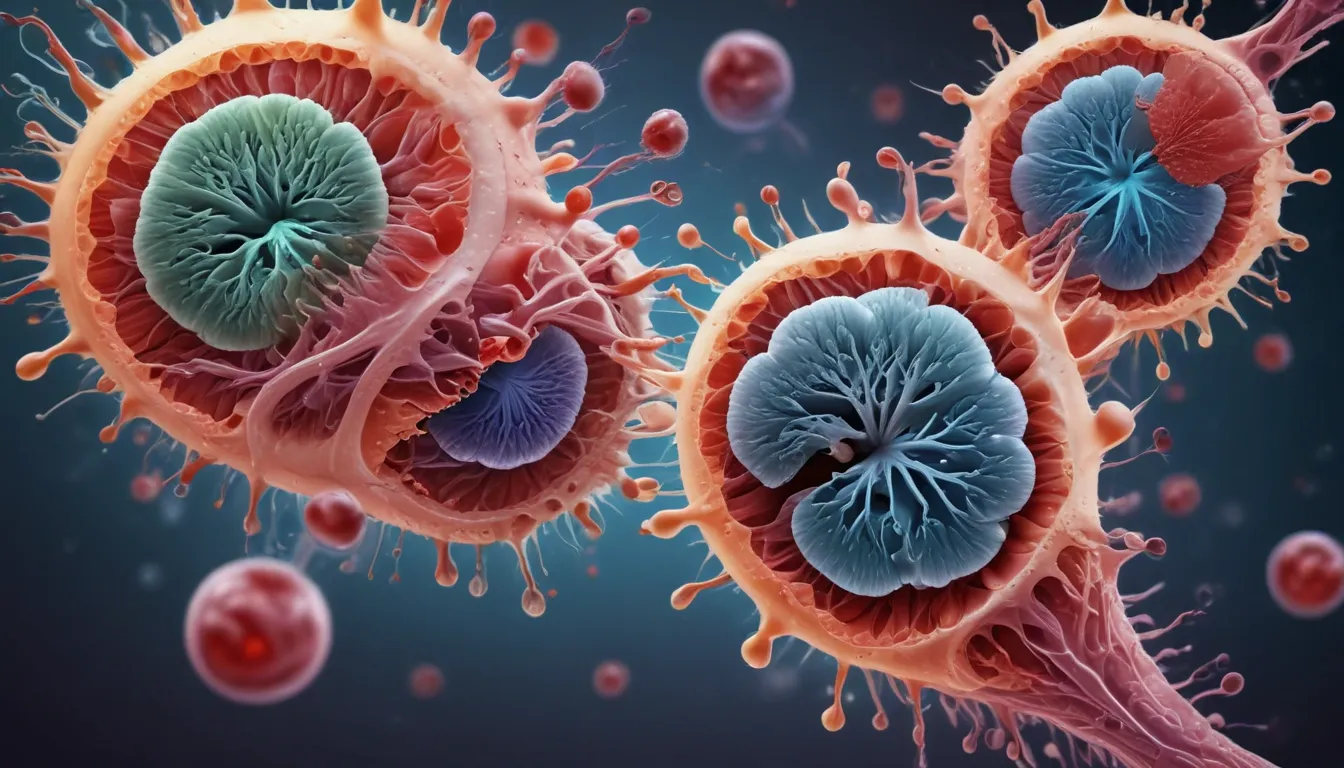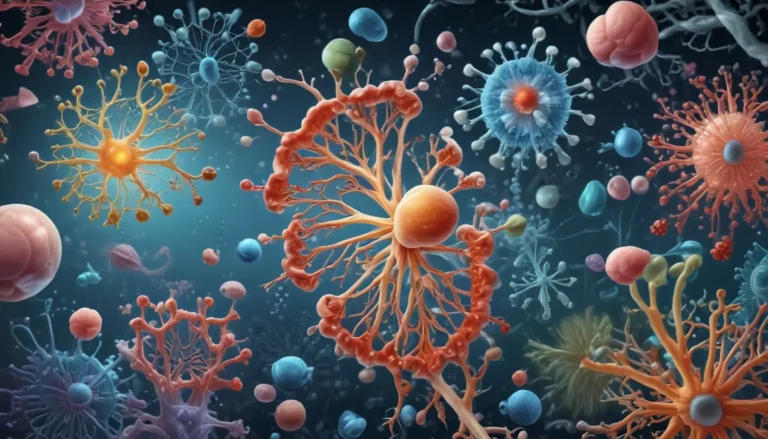A Note About Images: The images used in our articles are for illustration purposes only and may not exactly match the content. They are meant to engage readers, but the text should be relied upon for accurate information.
Stem cells have revolutionized the field of biology and medicine with their remarkable abilities and potential. These unique cells have the extraordinary capacity to differentiate into different cell types in the body, making them invaluable for research and regenerative therapies. Stem cell research has led to groundbreaking discoveries and advancements in treating various diseases and conditions, offering hope to millions around the world.
In this article, we will delve into 20 extraordinary facts about stem cells that highlight their significance and impact on the medical field. From their various types and sources to their regenerative potential and ethical considerations, we will explore the fascinating world of stem cells and the incredible discoveries that have shaped our understanding of biology and medicine.
Unveiling the Marvels of Stem Cells
Stem cells possess the unique characteristic of being able to develop into different specialized cells such as nerve cells, muscle cells, and blood cells. This incredible versatility makes them invaluable in medical research and potential treatments.
Exploring the Diversity of Stem Cells
- Stem cells can differentiate into various cell types in the body, offering immense therapeutic potential.
- Two main types of stem cells exist: embryonic stem cells derived from embryos and adult stem cells found in various tissues.
- Stem cells play a vital role in the body’s natural healing process, aiding in tissue repair and regeneration.
Pioneering Advances in Stem Cell Therapy
Scientists believe that stem cell therapies have the potential to revolutionize the treatment of diseases such as Alzheimer’s, Parkinson’s, diabetes, and spinal cord injuries. These therapies aim to replace damaged or dysfunctional cells with healthy, functional ones derived from stem cells.
Unraveling the Ethics of Stem Cell Research
- The use of embryonic stem cells has sparked ethical debates concerning the source and destruction of embryos.
- Alternative methods like induced pluripotent stem cells offer new possibilities by reprogramming adult cells for research.
Unlocking the Secrets of Developmental Processes
By observing how stem cells differentiate and develop into specialized cells, scientists gain valuable insights into the complex processes that occur during embryonic development. This knowledge can help in understanding birth defects and genetic disorders.
Charting New Frontiers in Anti-Aging Treatments
Scientists are exploring the use of stem cells in skin rejuvenation and hair restoration, harnessing their regenerative properties to address common signs of aging and enhance overall appearance.
Spearheading Breakthroughs in Disease Treatment
Stem cell transplants, also known as bone marrow transplants, have been a lifeline for patients with leukemia and other blood-related diseases. This procedure involves replacing the diseased bone marrow with healthy stem cells to restore normal blood cell production.
Redefining Organ Transplantation with Stem Cells
- Stem cells offer potential solutions for organ transplantation by growing organs and tissues in the laboratory.
- This innovation could significantly alleviate the demand for organ transplants and save countless lives.
Propelling Innovations in Heart Disease Treatment
Stem cell-based therapies have shown promising results in repairing damaged heart muscle following a heart attack, aiming to promote tissue regeneration and improve heart function.
Illuminating Hope for Vision Restoration
Research on using stem cells to restore vision in individuals with degenerative eye conditions such as macular degeneration and retinitis pigmentosa offers hope for replacing damaged retinal cells.
Preserving Future Possibilities with Stem Cell Storage
Cryopreservation enables the freezing and storage of stem cells for future use, providing a personalized and readily available source for potential treatments.
Embracing Stem Cell Therapies in Veterinary Medicine
Stem cell therapies have extended to animals like horses and dogs, aiding in the healing of musculoskeletal injuries and other conditions.
Unlocking the Mysteries of Aging with Stem Cells
Studying the role of stem cells in aging may provide insights into mechanisms that contribute to age-related decline, potentially leading to interventions to slow down the aging process.
Shaping the Future of Spinal Cord Injury Treatment
Researchers are investigating the use of stem cells to repair spinal cord injuries and restore lost motor function, aiming to promote nerve regeneration and improve quality of life.
Revolutionizing Transplantation with Artificial Organs
Scientists are developing functional, lab-grown organs using stem cells, potentially eliminating the need for donor organs and revolutionizing organ transplantation.
Revolutionizing Cancer Research with Stem Cells
Stem cells play a crucial role in cancer initiation and progression, guiding the development of more effective treatments and targeted therapies against various types of cancer.
Offering Hope for Autoimmune Disease Management
Stem cell therapies offer hope in modulating the immune response and mitigating the effects of autoimmune diseases like multiple sclerosis and rheumatoid arthritis.
Enhancing Drug Testing and Development with Stem Cells
Culturing specific stem cells allows for the creation of disease models, improving drug testing accuracy and development efficiency in pharmaceutical research.
Rejuvenating Tissues with Stem Cell-Based Therapies
Research on stem cell-based therapies aims to restore and rejuvenate damaged or aging tissues, offering significant implications for treating degenerative diseases and age-related conditions.
Embracing the Promise of Stem Cells
The field of stem cell research continues to advance, offering exciting possibilities for medical breakthroughs and novel treatments. As scientists delve deeper into the potential of stem cells, we can anticipate even more extraordinary discoveries and advancements in the coming years.
Frequently Asked Questions
-
What are stem cells?
Stem cells are undifferentiated cells that can develop into specialized cells and regenerate tissue in the body. -
Where do stem cells come from?
Stem cells can be found in various locations in the body, such as bone marrow, adipose tissue, umbilical cord blood, and embryos. -
What is the potential of stem cells in medicine?
Stem cells have the potential to revolutionize medicine by providing new treatments for a wide range of diseases, injuries, and conditions. -
Are stem cell therapies already being used?
Yes, several stem cell therapies are currently approved for use in certain conditions, such as bone marrow transplantation for leukemia. -
Are there any ethical concerns surrounding stem cell research?
The use of embryonic stem cells raises ethical questions, but alternative sources like adult stem cells and induced pluripotent stem cells are being studied to address these concerns. -
How long until stem cell therapies become widely available?
More research and clinical trials are needed to ensure the safety and efficacy of stem cell therapies before they can be widely available. The timeline depends on scientific progress and regulatory approval processes.
Stem cells offer a world of possibilities in medicine, from regenerative treatments to disease cures. As we continue to unravel the mysteries of stem cells, we step closer to a future where these remarkable cells can transform lives and redefine healthcare.






